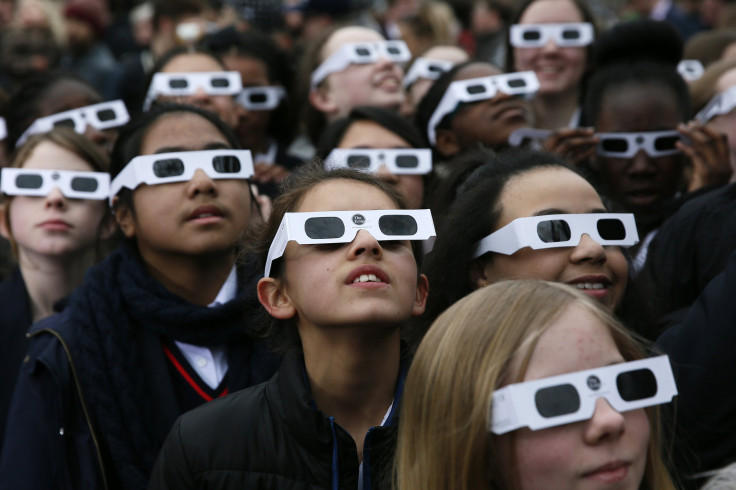Solar Eclipse 2015: Europe Goes Dark During Partial Eclipse, But Solar Power Sector Survives

Darkness descended on Europe on Friday morning during a rare solar eclipse. So far, it seems that Europe’s power grid survived the event, despite early warnings that a sudden drop in sunbeams would briefly shut down the solar energy sector.
News that huge swaths of Europe would be plunged into shadow during the eclipse sparked concerns that even a brief absence of solar energy supplies would make the grid go haywire. Solar panels are feeding increasing amounts of energy into the grids of countries such as the Britain, Germany, Italy, Spain and France, as governments seek to reduce harmful greenhouse gas emissions from fossil fuels. Germany now leads the world in solar power production, with up to 40 percent of its electricity coming from panels during its sunny summer months.
“Given the growth in renewables across Europe in recent years, this will require an unprecedented amount of careful balancing of supply and demand across the grid,” Valentin de Miguel of the consulting firm Accenture previously told the Wall Street Journal.
On Friday morning, about 85 percent of the sun was blocked over Britain between 8:30 and 10:30 a.m. local time. Over Paris and Milan, around 75 percent and 65 percent of the sun, respectively, was eclipsed by the moon. The partial eclipse was the first to happen in northern Europe since 1999, and the next event isn’t expected until August 2026.
Alessandro Abate, a professor in Oxford University’s computer science department, said any effects of the eclipse on the grid were likely minor, particularly because the astronomical event happened in the early morning, when solar panels typically generate only a little electricity. In the early spring, renewables also don’t contribute much to the overall energy mix compared to the sunnier days of summer.
“All of the effects were very much limited,” Abate said by phone, though he said his department is still collecting data to determine the precise impact of the eclipse on the grid. “There will be a bit of data processing by the engineers, and that will take a few days, if not weeks, to better understand this data," he added.
In Germany, grid operators said the drop in solar power was less than the 13,000 megawatts they had initially feared, while Britain's National Grid and utilities in Spain and Italy reported an overall success in managing power loads, Reuters reported.
The information Abate and his team are gathering could help utility companies, scientists and energy developers to better predict the outcome of the 2026 eclipse. By then, Europe’s solar energy sector could be substantially larger, given the region’s mandates to slash greenhouse gas emissions and replace coal- and gas-fired electricity with cleaner renewable fuels. Last October, leaders of the European Union agreed to reduce emissions to 40 percent below 1990 levels by 2030. They’ll also aim to boost renewables to 27 percent of the total energy market over the same time frame.
© Copyright IBTimes 2024. All rights reserved.





















